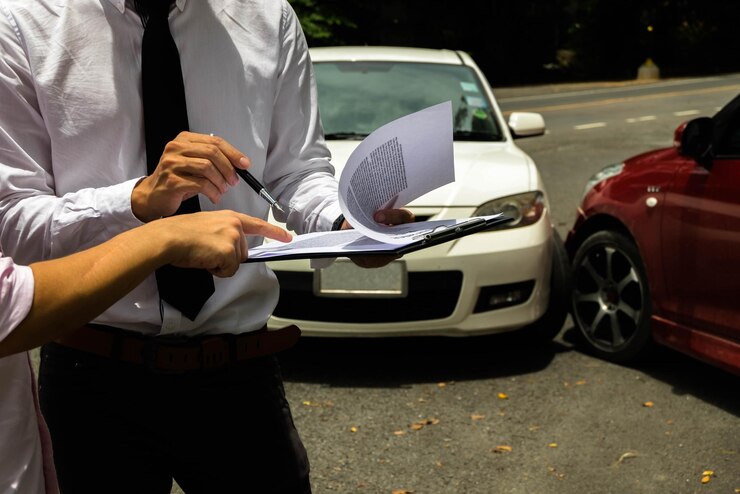COMPARE VEHICLE INSURANCE: How To Find The Best Coverage For Your Needs
Compare Vehicle insurance is a critical aspect of responsible vehicle ownership. Whether you’re driving a car, truck, motorcycle, or any other vehicle, having the right insurance coverage can provide financial protection and peace of mind in case of accidents or unforeseen events.
Introduction to Vehicle Insurance
What is Vehicle Insurance?
Compare Vehicle insurance, commonly referred to as auto insurance, is a contract between you and an insurance company that provides financial protection in the event of damage, theft, or injury caused by your vehicle. It typically includes various types of coverage, such as liability, collision, comprehensive, and personal injury protection (PIP).
Importance of Vehicle Insurance
Having Compare Vehicle insurance is not only a legal requirement in many places but also essential for protecting yourself and your assets. In the event of an accident, insurance coverage can help cover the cost of repairs, medical expenses, and legal fees, saving you from significant financial losses.
Understanding Different Types of Coverage
Vehicle insurance policies offer different types of coverage to meet various needs. Liability coverage protects you if you’re at fault in an accident and cause injury or damage to another person or their property. Collision coverage pays for damage to your vehicle caused by a collision with another vehicle or object. Comprehensive coverage provides protection against theft, vandalism, and other non-collision incidents. Personal injury protection (PIP) covers medical expenses for you and your passengers regardless of who is at fault.
Factors to Consider When Comparing Vehicle Insurance
Cost of Premiums
One of the primary considerations when compare vehicle insurance is the cost of premiums. Premiums can vary significantly depending on factors such as your age, driving record, vehicle type, and coverage options. It’s essential to obtain quotes from multiple insurance companies to find the most competitive rates.
Coverage Options
Another crucial factor to consider is the coverage options offered by each insurance company. While basic liability coverage is required by law, you may want to consider additional coverage options such as collision, comprehensive, and uninsured/underinsured motorist coverage for added protection.
Deductibles and Limits
Deductibles and coverage limits play a significant role in determining the cost and scope of your insurance policy. A deductible is the amount you must pay out of pocket before your insurance coverage kicks in, while coverage limits dictate the maximum amount your insurance company will pay for a covered claim. It’s essential to choose deductibles and limits that align with your budget and risk tolerance.
Company Reputation and Customer Service
When comparing vehicle insurance companies, it’s essential to consider their reputation and level of customer service. Look for companies with positive reviews and high ratings from customers. Additionally, consider factors such as claims processing time, ease of communication, and overall customer satisfaction.
Gathering Information for Comparison
Identifying Your Needs
Before compare vehicle insurance policies, take some time to assess your needs and priorities. Consider factors such as your budget, driving habits, and the value of your vehicle to determine the type and amount of coverage you require.
Researching Insurance Companies
Once you’ve identified your needs, research various insurance companies to find ones that offer the coverage options and pricing that meet your requirements. Visit company websites, read customer reviews, and seek recommendations from friends and family members.
Obtaining Quotes
Once you’ve narrowed down your options, request quotes from multiple insurance companies to compare prices and coverage options. Be sure to provide accurate information about your vehicle, driving history, and coverage needs to receive accurate quotes.
Evaluating Coverage Options
Liability Coverage
Liability coverage is the foundation of any vehicle insurance policy and covers damages and injuries you may cause to others in an accident. It typically includes bodily injury liability and property damage liability coverage.
Collision Coverage
Collision coverage pays for damage to your vehicle caused by a collision with another vehicle or object, regardless of who is at fault. It’s especially important if you drive a newer or more valuable vehicle.
Comprehensive Coverage
Comprehensive coverage provides protection against theft, vandalism, natural disasters, and other non-collision incidents. It’s valuable for protecting your vehicle from a wide range of risks.
Personal Injury Protection (PIP)
Personal injury protection (PIP) covers medical expenses for you and your passengers regardless of who is at fault in an accident. It can help cover medical bills, lost wages, and other expenses related to injuries sustained in a car accident.
Analyzing Premium Costs
How Premiums are Calculated
Insurance premiums are calculated based on various factors, including your age, driving record, vehicle type, location, and coverage options. Generally, drivers with clean driving records and lower-risk vehicles pay lower premiums.
Discounts and Savings Opportunities
Many insurance companies offer discounts and savings opportunities to help reduce premiums. Common discounts include multi-policy discounts, safe driver discounts, good student discounts, and discounts for certain safety features on your vehicle.
Balancing Cost with Coverage
When comparing vehicle insurance quotes, it’s essential to strike a balance between cost and coverage. While it may be tempting to choose the cheapest policy available, it’s crucial to ensure that you’re adequately covered in case of an accident or other unforeseen events.
Understanding Deductibles and Limits
What are Deductibles?
A deductible is the amount you must pay out of pocket before your insurance coverage kicks in. For example, if you have a $500 deductible and your vehicle sustains $1,000 in damages in an accident, you would pay $500, and your insurance company would cover the remaining $500.
Determining the Right Deductible for You
When choosing a deductible, consider your budget and risk tolerance. While higher deductibles typically result in lower premiums, they also mean you’ll have to pay more out of pocket in the event of a claim. Conversely, lower deductibles result in higher premiums but lower out-of-pocket expenses after an accident.
Setting Coverage Limits
Coverage limits refer to the maximum amount your insurance company will pay for covered claims. For example, if you have a liability coverage limit of $50,000 for bodily injury and $25,000 for property damage, your insurance company will pay up to those amounts for any covered claims. It’s crucial to choose coverage limits that provide adequate protection based on your assets and potential liabilities.
Assessing Company Reputation and Customer Service
Checking Reviews and Ratings
Before selecting an insurance company, take the time to research their reputation by reading customer reviews and checking ratings from independent agencies such as J.D. Power and AM Best. Look for companies with high ratings for customer satisfaction and financial stability.
Investigating Claims Processes
Another important factor to consider is the insurance company’s claims process. Research how quickly and efficiently they handle claims, as well as their reputation for customer service during the claims process. A company with a smooth and transparent claims process can provide peace of mind in stressful situations.
Seeking Recommendations
Finally, don’t hesitate to ask friends, family members, or colleagues for recommendations when choosing an insurance company. Personal referrals can provide valuable insights into the quality of service and coverage offered by different insurers.
Making the Final Decision
Comparing Quotes
Once you’ve gathered all the necessary information, compare quotes from multiple insurance companies to find the best coverage at the most competitive price. Consider factors such as coverage options, premiums, deductibles, limits, and customer service reputation when making your decision.
Reviewing Policy Details
Before finalizing your insurance policy, carefully review all the details, terms, and conditions outlined in the policy documents. Make sure you understand what is covered, what is excluded, and any limitations or restrictions that may apply.
Considering Long-Term Benefits
While cost is an important factor when choosing vehicle insurance, don’t overlook the long-term benefits of comprehensive coverage and excellent customer service. Investing in a quality insurance policy with adequate coverage and reliable customer support can save you time, money, and stress in the long run.
Conclusion
In conclusion, comparing vehicle insurance is essential for finding the best coverage to meet your needs and budget. By considering factors such as cost, coverage options, deductibles, limits, and company reputation, you can make an informed decision that provides adequate protection and peace of mind on the road.
FAQs (Frequently Asked Questions)
Is it necessary to have vehicle insurance?
Yes, vehicle insurance is legally required in most places to protect you and others in case of accidents.
How can I lower my insurance premiums?
You can lower your premiums by maintaining a clean driving record, choosing a higher deductible, and taking advantage of discounts offered by insurance companies.
What is the difference between liability and full coverage insurance?
Liability insurance covers damages and injuries you may cause to others, while full coverage insurance includes additional protection for your own vehicle.
Can I change my coverage limits and deductibles after purchasing a policy?
Yes, you can usually adjust your coverage limits and deductibles at any time by contacting your insurance company.
What should I do if I’m involved in an accident?
If you’re involved in an accident, first ensure everyone is safe, then exchange insurance information with the other party and contact your insurance company to file a claim.







